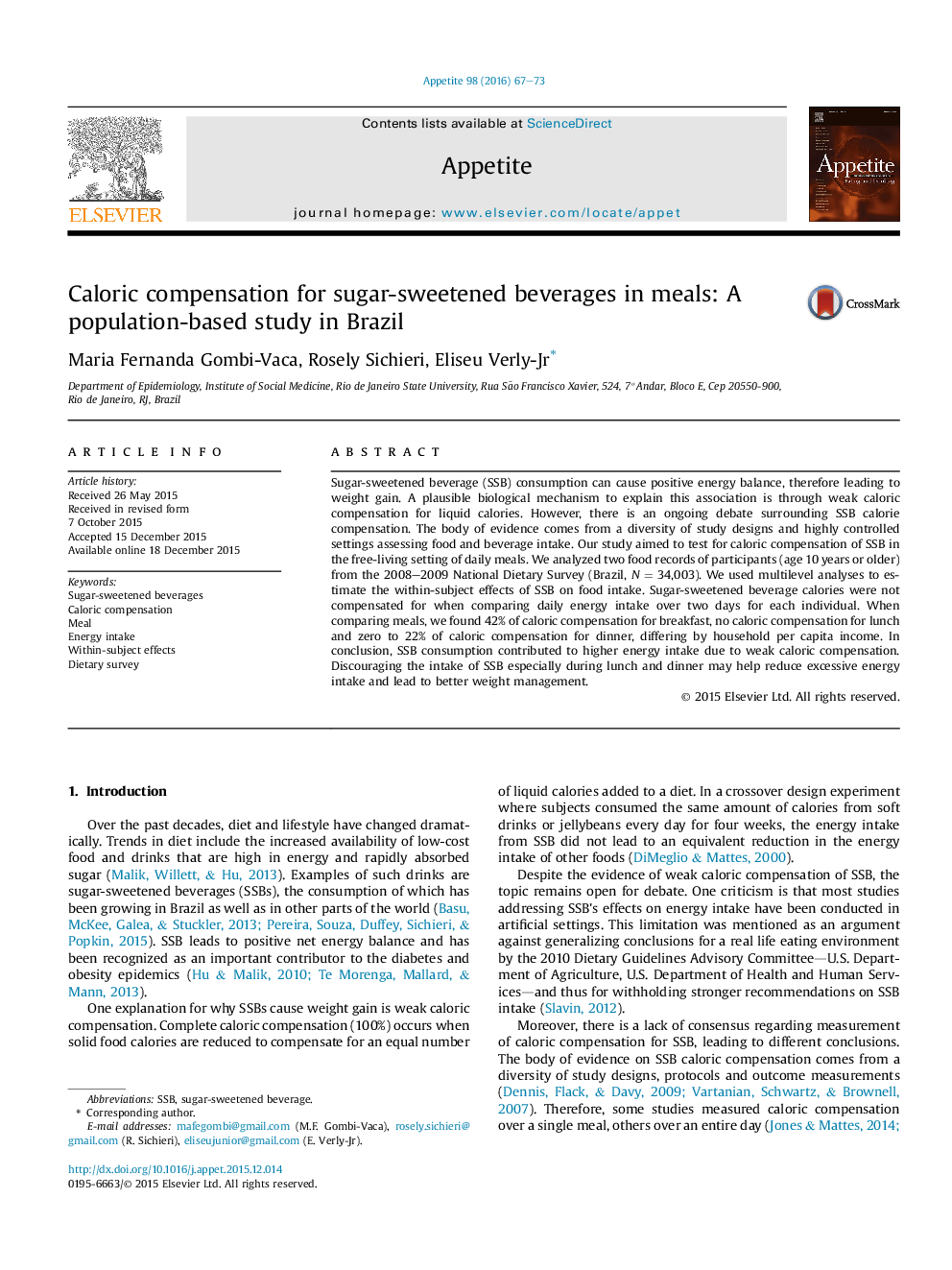| کد مقاله | کد نشریه | سال انتشار | مقاله انگلیسی | نسخه تمام متن |
|---|---|---|---|---|
| 7307805 | 1475382 | 2016 | 7 صفحه PDF | دانلود رایگان |
عنوان انگلیسی مقاله ISI
Caloric compensation for sugar-sweetened beverages in meals: A population-based study in Brazil
ترجمه فارسی عنوان
جبران کالری برای نوشیدنی های شکر شیرین شده در وعده های غذایی: یک مطالعه مبتنی بر جمعیت در برزیل
دانلود مقاله + سفارش ترجمه
دانلود مقاله ISI انگلیسی
رایگان برای ایرانیان
کلمات کلیدی
موضوعات مرتبط
علوم زیستی و بیوفناوری
علوم کشاورزی و بیولوژیک
دانش تغذیه
چکیده انگلیسی
Sugar-sweetened beverage (SSB) consumption can cause positive energy balance, therefore leading to weight gain. A plausible biological mechanism to explain this association is through weak caloric compensation for liquid calories. However, there is an ongoing debate surrounding SSB calorie compensation. The body of evidence comes from a diversity of study designs and highly controlled settings assessing food and beverage intake. Our study aimed to test for caloric compensation of SSB in the free-living setting of daily meals. We analyzed two food records of participants (age 10 years or older) from the 2008-2009 National Dietary Survey (Brazil, NÂ =Â 34,003). We used multilevel analyses to estimate the within-subject effects of SSB on food intake. Sugar-sweetened beverage calories were not compensated for when comparing daily energy intake over two days for each individual. When comparing meals, we found 42% of caloric compensation for breakfast, no caloric compensation for lunch and zero to 22% of caloric compensation for dinner, differing by household per capita income. In conclusion, SSB consumption contributed to higher energy intake due to weak caloric compensation. Discouraging the intake of SSB especially during lunch and dinner may help reduce excessive energy intake and lead to better weight management.
ناشر
Database: Elsevier - ScienceDirect (ساینس دایرکت)
Journal: Appetite - Volume 98, 1 March 2016, Pages 67-73
Journal: Appetite - Volume 98, 1 March 2016, Pages 67-73
نویسندگان
Maria Fernanda Gombi-Vaca, Rosely Sichieri, Eliseu Verly-Jr,
